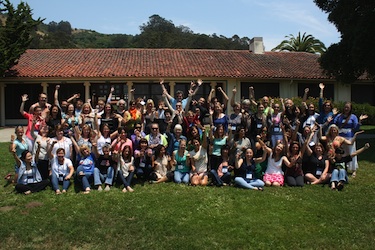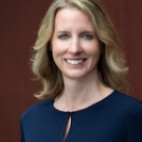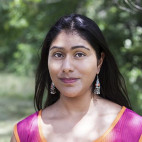-
PROPOSED SCHEDULE FOR THE WEEK
-
Monday, July 13
-
3:00 - 6:00 pm
Registration
-
6:00 - 8:00 pm
Informal Reception and Activities (buffet dinner provided)
-
Tuesday, July 14
-
7:00 - 9:00 am
Breakfast
-
7:00 - 8:00 am
Yoga (optional)
-
7:30 - 8:30 am
Hike (optional)
-
9:00 am - 12:30 pm
Creating a safe learning environment and surfacing our deepest beliefs, values, and mental models about prosocial development within the school context
-
12:30 - 1:30 pm
Lunch
-
1:30 - 3:30 pm
Creating a safe learning environment and surfacing our deepest beliefs, values, and mental models about prosocial development within the school context
-
3:30 - 5:00 pm
Possible Optional Session
-
Wednesday, July 15
-
9:00 am - 12:30 pm
Caring for ourselves and building our own social-emotional competencies
-
1:30 - 3:30 pm
Using the science of social-emotional well-being and mindfulness to nurture the teacher-student relationship
-
Thursday, July 16
-
9:00 am - 12:30 pm
Using the science of empathy and compassion to build a positive school climate
-
1:30 - 3:30 pm
Using the science of forgiveness and gratitude to build a positive school climate
-
Friday, July 17
-
9:00 am - 12:30 pm
Ethical Development
-
1:30 - 3:30 pm
Taking it home (sharing what you learned and experienced with those back home)
-
Saturday, July 18
-
9:00 am - 12:30 pm
Open Space (participants hold discussion groups on topics of their choice)
Closing
-
12:30 - 1:30pm
Lunch (optional, for those who would like to eat before traveling home)

- Venue: Clark Kerr Campus, UC Berkeley
- Date: Monday July 13 - Saturday July 18, 2020
-
Price: $2,600, which includes tuition, lodging, most meals, and materials.
-
Our priority deadline for applications was January 31st, but are still accepting additional applications on a rolling basis. We are not able to offer scholarship funding to any applicants submitting materials after January 31st.
Special Note: Now more than ever, we have the opportunity to prioritize the social-emotional well-being of students and educators—on a global scale. As we monitor the COVID-19 crisis, we will do our best to be responsive to educators' needs by presenting the most relevant, up-to-date content and instructional delivery methods. Stay tuned for further information.
What Is the Greater Good Summer Institute for Educators?
Research is unequivocal: The secret to success in social-emotional learning, mindfulness, character, and other pro-social human development programs is YOU—the adult. Therefore, our five-day workshop/retreat focuses on deepening your knowledge, practice, and personal growth in these areas.
 We help participants to create a safe learning environment for questioning beliefs, assumptions, values, and practices around well-being for ourselves and our students. Then we explore how to integrate this science into school DNAs (school relationships, adult self-care, school climate, academic content).
We help participants to create a safe learning environment for questioning beliefs, assumptions, values, and practices around well-being for ourselves and our students. Then we explore how to integrate this science into school DNAs (school relationships, adult self-care, school climate, academic content).
You will leave empowered with cutting-edge, science-based strategies, tools, and processes to help cultivate learning environments in which all students, faculty, and staff thrive.
You will experience:
- Lectures and webinars on the science of prosocial human development
- Deep self-reflection, thought-provoking discussions, and collaborative strategy sessions to consider how this science applies to education
- Informal sharing with colleagues about what you are already doing to create thriving classrooms and schools
- A strong and lasting support network—participants will be divided by job category into “families” of eight to ten who learn, explore, and play together throughout the six days. Participants will also have plenty of opportunities to connect with other educators outside their families.
Ultimately, you will leave empowered with cutting-edge, science-based strategies, tools, and processes to adapt and share with students and adults in schools.
Who Should Apply?
School professionals who are interested in cultivating the prosocial development and well-being of students and the adults who work with them, including:
- Pre-K through 12 classroom teachers, paraeducators, and out-of-school-time providers
- Pre-K-12 School mental health professionals and counselors
- Pre-K-12 School and district-level administrators
- Pre-K-12 Teacher and administrator educators
- Other higher education lecturers or professors are welcome to apply, but please be aware that the Institute is geared primarily towards Pre-K-12 educators
Apply today!
Lead Facilitators
Vicki Zakrzewski, Ph.D., is the founding education director of the GGSC. As an international thought leader on the science of well-being in education, Vicki writes articles (Greater Good, ASCD's Educational Leadership, Edutopia, and Huffington Post), gives talks and workshops all over the world, and leads the GGSC's Summer Institute for Educators. Vicki also sits on several advisory boards and consults and collaborates with organizations on how to incorporate the science of well-being into education. Sample collaborations include the EASEL Lab and Making Caring Common within the Harvard Graduate School of Education; CASEL's California Collaborating States Initiative; the Learning and Policy Institute at Stanford University; UNESCO's Mahatma Gandhi Institute of Peace and Sustainable Development; Science for Monks and Nuns in Dharamsala, India; the Knowledge and Human Development Authority in Dubai, UAE; the Mind and Life Institute (of which she is a fellow); several social-emotional learning programs, including Second Step, MindUp, Open Circle, Facing History and Ourselves, and Inner Resilience; and Pixar/Disney on The Emotions Survival Guide—a follow-up book for children based on the movie Inside Out. Most recently, Vicki has been the creative lead for the GGSC's new online resource for educators, Greater Good in Education.
Amy L. Eva, Ph.D., is the Associate Education Director at The Greater Good Science Center. She is an educational psychologist, a former high school teacher, and a teacher educator. As a researcher, Amy has published in the areas of teacher education, metacognition, adolescent mental health, and mindfulness-based interventions with marginalized youth. She has also written numerous articles for Greater Good Magazine, as well as Edutopia, Mindful, and The Huffington Post. She is also one of the key developers of the website, Greater Good in Education, which features science-based practices for creating kinder, happier schools.
 The two- and three-bedroom suites have shared living rooms and one or two bathrooms that are shared by suite occupants. Each participant will be assigned a private room for sleeping with a shared bath.
The two- and three-bedroom suites have shared living rooms and one or two bathrooms that are shared by suite occupants. Each participant will be assigned a private room for sleeping with a shared bath.



 "Attending the Institute both helped me to be deeply grateful for the things my school already does, and to imagine and envision the places we can go in promoting SEL, mindfulness, and character education. Working with students of backgrounds historically underrepresented in higher education, these areas are so essential and so often neglected or ignored. It will be so special to bring back to share with my team and students."
"Attending the Institute both helped me to be deeply grateful for the things my school already does, and to imagine and envision the places we can go in promoting SEL, mindfulness, and character education. Working with students of backgrounds historically underrepresented in higher education, these areas are so essential and so often neglected or ignored. It will be so special to bring back to share with my team and students."